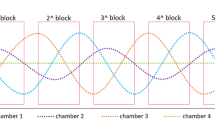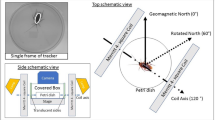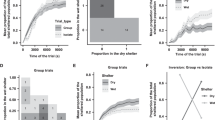Abstract
IN a recent paper, Bodenheimer1 has recorded observations on the temperature-preference of various insects. In his apparatus there is a gradient of temperature, and a number of animals which he puts into the apparatus are free to move along the gradient. The temperature at which each animal comes to rest can be read off, and the arithmetic mean of such temperatures is the preferred temperature. He finds that the humidity of the air in which the animals are kept before the experiment has an effect on the preferred temperature. For example, Adesmia clathrata (tenebrionid beetle), when kept in moist air before the experiment, preferred a temperature of 39.4° C., and when kept in drier air before use, preferred 36.6° C.
This is a preview of subscription content, access via your institution
Access options
Subscribe to this journal
Receive 51 print issues and online access
$199.00 per year
only $3.90 per issue
Buy this article
- Purchase on Springer Link
- Instant access to full article PDF
Prices may be subject to local taxes which are calculated during checkout
Similar content being viewed by others
References
Zeit. für vergl. Physiol., vol. 13, p. 740 ; 1931.
Author information
Authors and Affiliations
Rights and permissions
About this article
Cite this article
GUNN, D. Temperature and Humidity Relations of the Cockroach. Nature 128, 186–187 (1931). https://doi.org/10.1038/128186a0
Issue Date:
DOI: https://doi.org/10.1038/128186a0
This article is cited by
-
The temperature and humidity relations of the cockroach (Blatta orientalis)
Zeitschrift f�r Vergleichende Physiologie (1934)
Comments
By submitting a comment you agree to abide by our Terms and Community Guidelines. If you find something abusive or that does not comply with our terms or guidelines please flag it as inappropriate.



